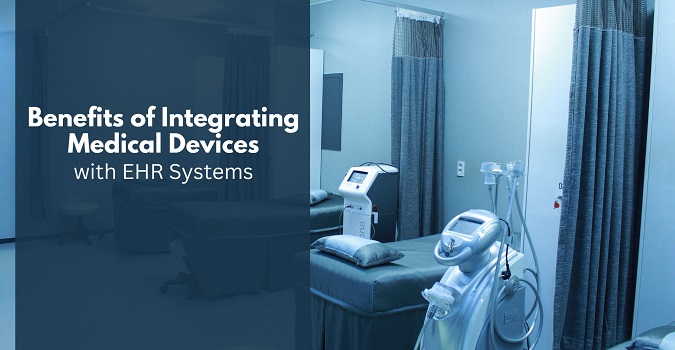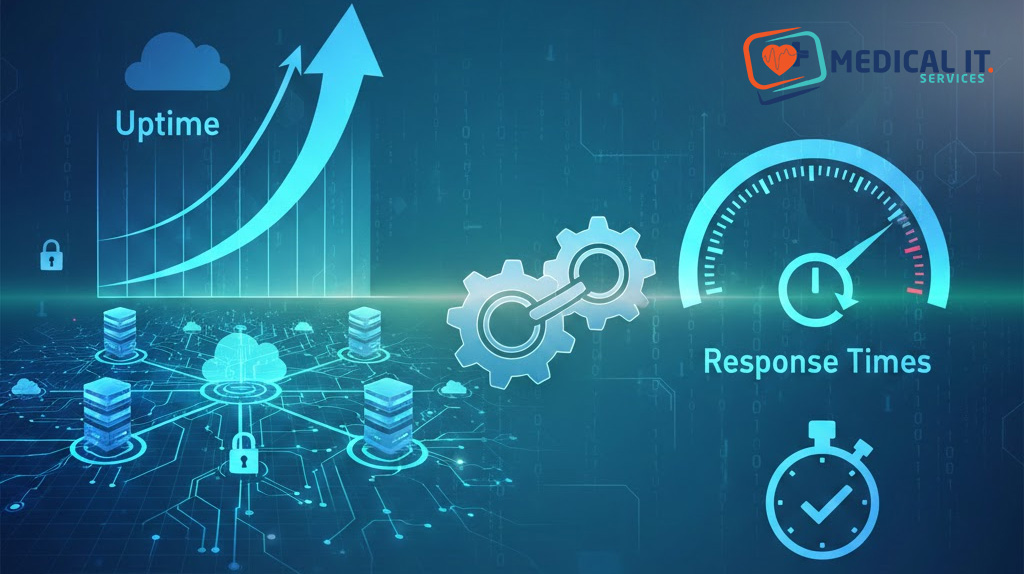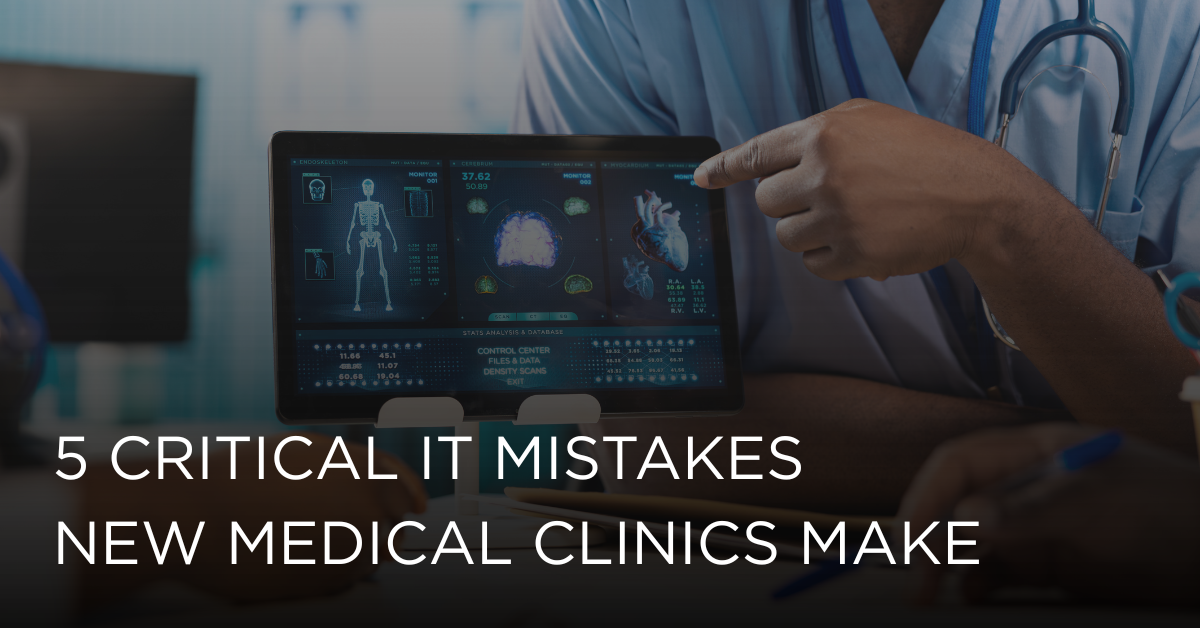A network security service provider is a company that secures your business’s digital systems and…

Benefits of Integrating Medical Devices with EHR Systems
Integrating medical devices with Electronic Health Records (EHR) systems is a transformative step in modern healthcare, offering numerous benefits that enhance patient care, streamline clinical workflows, and improve overall healthcare efficiency. In this blog, we explore the key benefits of integrating medical devices with EHR systems and how this integration can revolutionise healthcare delivery.
Key Benefits of Integrating Medical Devices with EHR
Integrating medical devices with Electronic Health Records (EHRs) offers significant advantages for healthcare providers and patients alike.
Improved Patient Care and Outcomes
One of the most significant benefits of integrating medical devices with EHR systems is the enhancement of patient care. Real-time data from medical devices, such as heart monitors or glucose metres, can be directly uploaded into a patient’s EHR. This integration allows healthcare providers to monitor patients’ vital signs continuously, identify potential issues earlier, and make timely decisions, ultimately improving patient outcomes.
Enhanced Accuracy and Reduced Errors
Manual entry of patient data from medical devices into EHRs is prone to human error. With automated integration, data is directly transmitted from devices to EHR systems, reducing the likelihood of transcription errors. This seamless data flow ensures that healthcare professionals have accurate and up-to-date information, which is vital for delivering effective treatment.
Streamlined Workflow and Increased Efficiency
Integrating medical devices with EHR systems eliminates the need for manual data entry, saving time and reducing administrative burdens on healthcare staff. This streamlined workflow allows nurses and doctors to focus more on patient care rather than on paperwork.
Better Data Management and Accessibility
Integration of medical devices with EHR systems provides centralised data management, allowing healthcare providers easy access to comprehensive patient data. This centralised approach helps in creating a more holistic view of a patient’s health, leading to better diagnosis and personalised treatment plans. Furthermore, integrated systems allow for secure sharing of data across different departments and facilities, promoting coordinated care.
Cost Savings for Healthcare Providers
By reducing the time spent on manual data entry and minimising errors, healthcare facilities can see significant cost savings. Integration leads to more efficient use of resources, reducing the need for repeat tests and procedures due to inaccurate data. With streamlined operations, healthcare organisations can optimise their workforce and focus more on value-based care, ultimately leading to better financial performance.
Enhanced Compliance and Reporting
EHR systems integrated with medical devices can automatically capture and store data in formats compliant with healthcare regulations, such as HIPAA and GDPR. This capability ensures that healthcare providers meet regulatory requirements for data security and patient privacy. Automated data collection and reporting also facilitate more accurate and timely submissions for regulatory audits and quality control.
Real-Time Monitoring and Alerts
Integrated EHR systems with medical devices enable real-time monitoring of patients’ health conditions. Automated alerts and notifications can be set up for specific thresholds, such as abnormal heart rates or blood pressure levels, allowing healthcare providers to intervene promptly. This feature is especially crucial for managing patients with chronic conditions, ensuring timely medical intervention.
Facilitating Telehealth and Remote Monitoring
The integration of medical devices with EHR systems supports telehealth and remote patient monitoring, which has become increasingly important in today’s healthcare landscape. Patients can use home-based medical devices that transmit data directly to their EHRs, enabling healthcare providers to monitor their conditions remotely. This capability is especially beneficial for managing chronic diseases, elderly care, and post-operative monitoring.
Why Choose MedicalIT.Services?
At MedicalIT.Services, we understand the complexities involved in integrating medical devices with EHR systems. Our team of experts offers comprehensive solutions to facilitate seamless integration, including:
- Consultation and Assessment: We assess your current infrastructure and provide tailored recommendations for device and EHR system integration.
- Implementation and Support: Our experienced professionals handle the technical aspects of integration, ensuring a smooth transition with minimal disruption to your practice.
- Ongoing Maintenance: We offer ongoing support and maintenance to ensure that your integrated systems remain functional and up-to-date.
By partnering with MedicalIT.Services, you can harness the full potential of medical device integration with EHR systems, driving improved efficiency, accuracy, and patient care within your healthcare organisation.
Conclusion
The integration of medical devices with EHR systems is a powerful step towards modernising healthcare delivery. From enhancing accuracy and efficiency to improving patient safety and engagement, the benefits are substantial. Our team of IT experts is here to support you through every stage of this integration journey, ensuring that your practice reaps the maximum benefits of this technological advancement.
Also Read:



